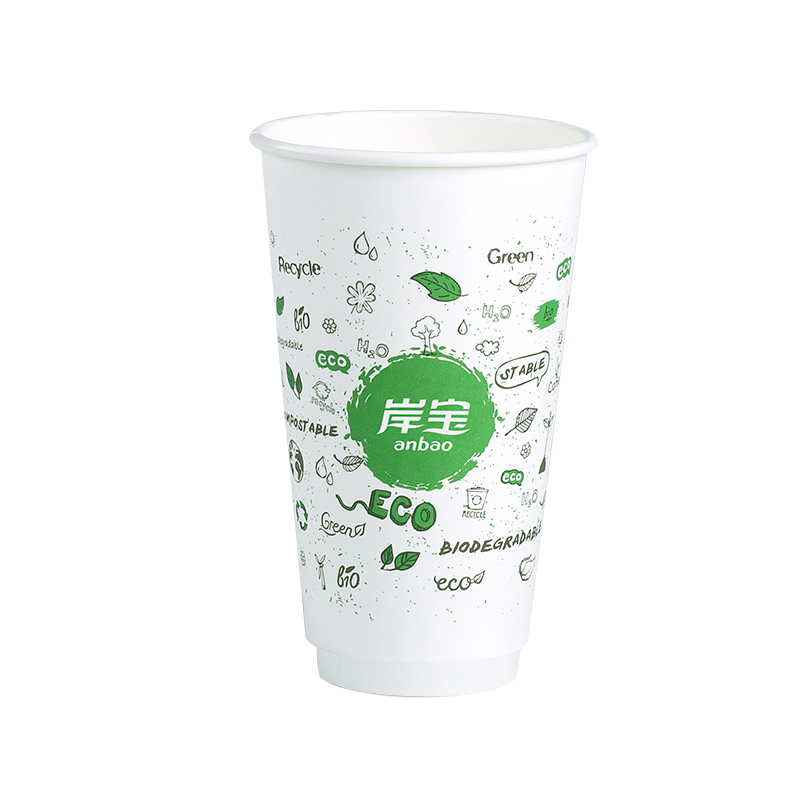
As global efforts to reduce plastic waste intensify, PBS cups emerge as a practical and eco-friendly packaging choice. Made from polybutylene succinate (PBS), a biodegradable thermoplastic, these cups offer the durability of traditional plastics while addressing environmental concerns. This guide explores their key features, applications, and sustainability benefits, helping businesses and consumers make informed choices.
What Are PBS Cups?
PBS cups are single-use or reusable containers crafted from polybutylene succinate (PBS), a polymer designed to degrade in industrial composting facilities. Unlike conventional plastics like PET or PP, PBS breaks down into water, carbon dioxide, and biomass within 3–6 months at 55–60°C (131–140°F), avoiding centuries of environmental persistence. Key advantages include:
Thermal Versatility: Withstands temperatures from -40°C (-40°F) to 110°C (230°F), suitable for hot coffee, icy drinks, and microwave use.
Mechanical Strength: Rigid yet impact-resistant, ensuring reliable performance for various applications.
The Advantages of PBS Material
PBS is a game-changer in sustainable packaging due to its unique properties:
Biodegradability: Engineered for controlled composting, reducing landfill waste and marine pollution.
Bio-Based Options: Derived from corn starch byproducts, bio-based PBS cuts carbon emissions by 30–50% compared to petroleum plastics.
Recycling Compatibility: Can be recycled with other polyesters, supporting circular economy goals.
Types of PBS Cups
PBS cups come in designs tailored to different needs:
Hot Beverage Cups: Double-walled for heat insulation, ideal for coffee and soups.
Cold Drink Cups: Clear and lightweight, perfect for juices and smoothies, with visibility matching PET.
Lidded Cups: Airtight seals for leak-free transport, essential for takeout and delivery.
Multi-Purpose Cups: Microwave-safe and heavy-duty, suitable for meals, industrial use, or medical sampling.
Applications Across Sectors
1. Food & Beverage Service
Coffee shops and cafes use PBS hot cups to align with sustainability values.
Catering and food delivery rely on lidded PBS cups for leak-resistant transport.
Events adopt disposable PBS cups to minimize waste during large gatherings.
2. Retail & Packaging
Pre-packaged foods like yogurt and salads use clear PBS cups for visual appeal and eco-friendly messaging.
Convenience stores offer microwave-safe PBS containers for ready-to-eat meals.
3. Healthcare & Labs
Sterile PBS cups serve meals in hospitals and collect medical specimens, meeting hygiene standards.
Industrial settings use heavy-duty PBS containers for non-corrosive liquid storage.
4. Outdoor & Lifestyle
Camping and hiking benefit from lightweight, temperature-resistant PBS cups.
Offices and schools promote reusable PBS cups as a durable, eco-friendly alternative to single-use plastics.
Choosing the Right PBS Cup
Key Considerations
Temperature Needs: Ensure heat/cold resistance matches your use (e.g., 95°C for hot drinks).
Seal Quality: Opt for lids with secure fits to prevent leaks during transport.
Certifications: Look for BPI or OK Compost Industrial for compostability, and FDA/EU food safety approvals.
Common Misconceptions
Myth: “PBS cups degrade in landfills.”
Fact: They require industrial composting facilities. Always use dedicated compost bins.
Myth: “PBS is more expensive.”
Fact: Costs are competitive with premium plastics, especially as production scales.
Standards & Future Trends
Global Standards: PBS meets ASTM D6400 (US) and EN 13432 (EU), ensuring safe compostability.
Innovations: Hybrid materials with natural fibers and smart indicators for compost readiness are on the rise.
Regulatory Drivers: Policies like the EU Single-Use Plastics Directive accelerate PBS adoption as a compliant alternative.


